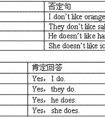用所给单词的适当形式填空。1. Iwant ____ (go)homenow.2.Let's ____ (drive)tothetrainstation.3.Dannywalks____ (slow)toschool.4.LiMing ____ (not)haveaball.5-五年级英语
The plane takes off at 11:30. (不受主观支配的计划)
-在剧本、解说、标题或there(here)开头的句中表进行
There goes the bell/Here comes Mr.Wang.
I declare the meeting opens.(正在宣布)
He meets the ball and hits back to No.2 (正在发生)
(二)现在进行时:
1.说话时正在发生,进行的动作
Look! Dark clouds are gathering . (正在发生)
2.表现阶段正在进行,但此刻不一定正在进行的事。
He usually gets up at 6:00,but this week he is getting up at 7:00. (现阶段正在进行,但说话时不一定在起床)
3.现在进行时的特殊意义
-表示主观打算常用于 go,come,leave,start,begin 等,位移、趋向动词。
How long are you staying here (准备停留)
-表示眼前刚过去的语意即“话音刚落”,适用于tell,say,talk,discuss ….
You don’t believe it You know I’m telling the truth.
-表示安慰、关心、喜欢、讨厌等感情色彩。
He is always making noises in class. (讨厌)
-在条件、时间、让步状语从句中表示将来正在进行。
Don’t bother him if he is reading this time tomorrow.
二、严格区分进行时与一般时的语义
1.持续动词的一般时表持续情况,经常性,习惯性行为或客观存在的事实,进行时表暂时性或有限时刻的持续。
2.短暂动词的一般时叙述事实,特征,能力而短暂动作进行时描述反复发生,即将发生或刚开始行为。
3.短暂动词和静态动词一般时表示实际情况客观状态、结果、特征、特性,进行时表未完成含开始或渐进之意。
The bus stops. (车停了-事实)
The bus is stopping. (渐渐停下来)
I love the job. (静态事实)
I am loving the job. ( 渐渐爱上了)
4.come,go,leave,start,return,move,reach,sail,fall 等一般时态表客观规定计划,进行时表主观打算推测。
Flight 254 leaves at 5:30. (表客观规定计划)
The plane is taking off an hour later.(主观判断)
5.现在进行时带always,continually, constantly, for ever等频率副词表感情色彩,一般现在时则没有此用法。
现在进行时的构成是:
主语+be+v.ing〔现在分词〕形式
|
人称 |
构成形式 |
|
第一人称单数 |
I+am+ing. |
|
第一人称复数 |
We+are+ing. |
|
第二人称单(复)数 |
You+are+ing |
|
第三人称单数 |
He(She,it)+is+ing |
|
第三人称复数 |
They+are+ing |
|
句式 |
|
|
肯定句 |
主语+be(is/am/are)+现在分词 |
|
否定句 |
主语+be(is/am/are)+not+现在分词 |
|
一般疑问句 |
(is/am/are)+主语+现在分词 |
|
be特殊疑问句 |
特殊疑问词+相应be动词+主语+现在分词+Sth? |
现在分词的构成:
|
词 |
构成 |
举例 | |
|
一般情况 |
词尾+ing |
动词原形 |
现在分词 |
|
go |
going | ||
|
以不发音字母e结尾 |
去e,再加ing |
write |
writing |
|
以重读闭音节结尾,且末尾只有一个辅以字母 |
双写词尾+ing |
run |
running |
|
以ie结尾的重读闭音节 |
变ie为y+ing |
die lie |
dying lying |
|
结尾为c且c读作/k/时 |
在结尾加k再加ing |
picnic | picnicking |
考点名称:助动词
助动词:
协助主要动词构成谓语动词词组的词叫助动词,被协助的动词称作主要动词。
构成时态和语态:助动词是语法功能词,自身没有词义,不可单独使用,它没有对应的汉译,
例如:Hedoesn'tlikeEnglish.他不喜欢英语。(doesn't是助动词,无词义;like是主要动词,有词义)- 小学涉及到的助动词主要是do,以及它的两种时态:does和did。
例:Does he work in the factory? 他是在这个工厂工作吗?
Do you have a pen? 你有一支钢笔吗?
He didn’t go to school yesterday. 他昨天没有去上学。
助动词do 的用法:
1)构成一般疑问句,例如:
Do you want to pass the CET? 你想通过大学英语测试吗?
Did you study German? 你们学过德语吗?
2) do + not 构成否定句,例如:
I do not want to be criticized. 我不想挨批评。
He doesn't like to study. 他不想学习。
In the past, many students did not know the importance of English. 过去,好多学生不知道英语的重要性。
3)构成否定祈使句,例如:
Don't go there. 不要去那里。
Don't be so absent-minded. 不要这么心不在焉。
说明: 构成否定祈使句只用do,不用did和does。
4)放在动词原形前,加强该动词的语气,例如:
Do come to my birthday party. 一定来参加我的生日宴会。
I did go there. 我确实去那儿了。
I do miss you. 我确实想你。
5) 用于倒装句,例如:
Never did I hear of such a thing. 我从未听说过这样的事情。
Only when we begin our college life do we realize the importance of English.
只有在开始大学生活时我们才认识到英语的重要性。
说明: 引导此类倒装句的副词有never, seldom, rarely, little, only, so, well等。
6)用作代动词,例如:
---- Do you like Beijing? --你喜欢北京吗?
---- Yes, I do. --是的,喜欢。(do用作代动词,代替like Beijing.)
He knows how to drive a car, doesn't he?
他知道如何开车,对吧? - 基本助动词:
be, do, have, 他们没有词汇意义,只有语法作用,如协助构成进行体,完成体,被动态,否定句,疑问句等。
例如 He is giving a lecture. 他在作报告
He has made a plan. 他已经订了计划
The small animals are kept in the cages. 小动物都关在笼子里。
助动词协助主要动词完成以下功用:
a. 表示时态,例如:
He is singing. 他在唱歌。
He has got married. 他已结婚。
b. 表示语态,例如:
He was sent to England. 他被派往英国。
c. 构成疑问句,例如:
Do you like college life? 你喜欢大学生活吗?
Did you study English before you came here? 你来这儿之前学过英语吗?
d. 与否定副词not合用,构成否定句,例如:
I don't like him. 我不喜欢他。
e. 加强语气,例如:
Do come to the party tomorrow evening. 明天晚上一定来参加晚会。
He did know that. 他的确知道那件事。
- 最新内容
- 相关内容
- 网友推荐
- 图文推荐
| [家长教育] 孩子为什么会和父母感情疏离? (2019-07-14) |
| [教师分享] 给远方姐姐的一封信 (2018-11-07) |
| [教师分享] 伸缩门 (2018-11-07) |
| [教师分享] 回家乡 (2018-11-07) |
| [教师分享] 是风味也是人间 (2018-11-07) |
| [教师分享] 一句格言的启示 (2018-11-07) |
| [教师分享] 无规矩不成方圆 (2018-11-07) |
| [教师分享] 第十届全国教育名家论坛有感(二) (2018-11-07) |
| [教师分享] 贪玩的小狗 (2018-11-07) |
| [教师分享] 未命名文章 (2018-11-07) |


![I want to ______________a science teacher one day![ ]A. beB. isC. are-六年级英语](http://www.00-edu.com/d/file/ks/4/1/58/2019-08-28/small0786c619dff6ea7cc013f1222e770e571566922364.png)
![Let's get ____ work![ ]A. on B. inC. to-四年级英语](http://www.00-edu.com/d/file/ks/4/1/58/2019-08-28/smallaeead033e0df4ab64ad92e4eecbe84ed1566922686.png)
![It's 10 o'clock. It's time_________go to school.[ ]A. toB. forC. of-四年级英语](http://www.00-edu.com/d/file/ks/4/1/58/2019-08-28/smallcbd5ebed803baef3505fe0cd5bc985461566922628.jpg)

